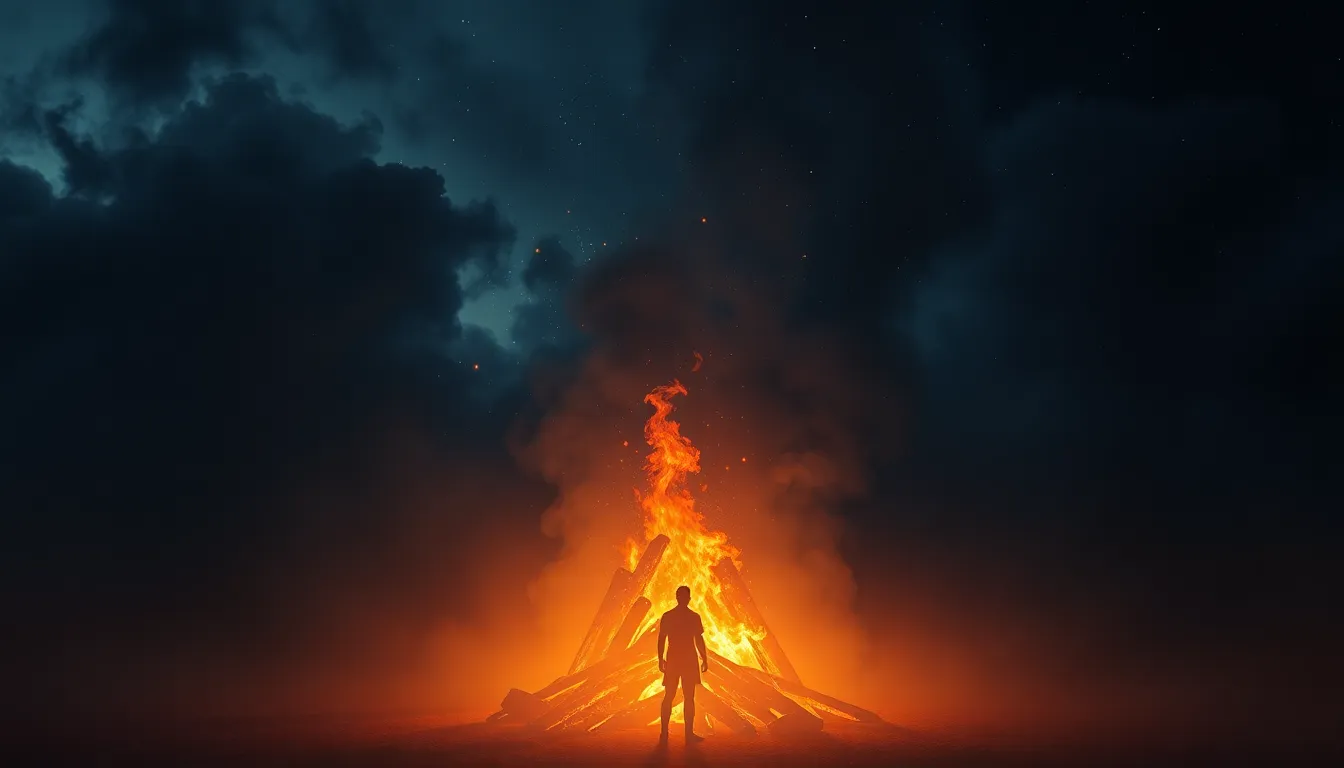The First Fire: How Creation Myths Spark Our Curiosity
1. Introduction: The Allure of Creation Myths
Creation myths are foundational stories that explain the origins of the world, humanity, and the cosmos. They exist in various forms across cultures, serving as a reflection of human beliefs, values, and experiences. These myths are significant not only for their historical and cultural contexts but also for their role in fueling our curiosity about existence and the universe.
Human beings have an innate desire to understand their origins, and creation myths provide a framework for exploring these existential questions. They spark our imagination and invite us to ponder the mysteries of life, death, and everything in between.
2. The Concept of Fire in Mythology
Fire is a powerful symbol in mythology, representing various concepts such as creation, destruction, transformation, and enlightenment. Across different cultures, fire embodies:
- Creation: Often seen as a force that brings life and energy.
- Transformation: A means of change, whether it be the metamorphosis of the earth or the evolution of human beings.
- Destruction: A double-edged sword that can lead to renewal or annihilation.
The dual nature of fire makes it a potent motif in creation stories, symbolizing both the beginnings and the endings of worlds.
3. The Story of Prometheus: The Gift of Fire in Greek Mythology
In Greek mythology, the tale of Prometheus is one of the most compelling narratives surrounding the theme of fire. Prometheus, a Titan, defied the gods by stealing fire from Olympus and giving it to humanity. This act of rebellion not only provided humans with the means to survive but also ignited the spark of innovation and knowledge.
Prometheus’s story carries deep implications. He is often viewed as a symbol of defiance against tyranny and the pursuit of enlightenment. His gift of fire represents the light of knowledge that illuminates the darkness of ignorance, a recurring theme in human history.
4. Indigenous Creation Myths and the Element of Fire
Fire plays a crucial role in many Indigenous creation myths, particularly among Native American and Aboriginal cultures. For these communities, fire is not merely a tool; it is a sacred element intertwined with their identity and relationship to the land. In various stories, fire represents:
- Connection: A bond between people, land, and the spirits that inhabit them.
- Balance: Fire is often seen as a force that maintains ecological harmony.
- Ritual: Integral to ceremonies that honor ancestors and the earth.
This connection to fire illustrates how these cultures perceive their origins and their responsibilities to the world around them.
5. Fire in Eastern Creation Myths: The Role of Destruction and Renewal
In Eastern creation myths, particularly in Hindu and Chinese traditions, fire embodies the cycle of destruction and renewal. In Hindu cosmology, the universe undergoes cycles of creation and dissolution, with fire representing both the end and the potential for a new beginning.
In Chinese mythology, the concept of fire is integral to the balance of the five elements, signifying transformation and the dynamic nature of the cosmos. These stories emphasize:
- Cyclical Nature: Everything is interlinked in a continuous cycle of birth, death, and rebirth.
- Harmony: The balance between opposing forces is crucial for existence.
Thus, fire serves as a reminder of the transient nature of life and the importance of renewal.
6. The Psychological Impact of Creation Myths on Human Curiosity
Creation myths captivate human imagination by addressing fundamental existential questions: Where do we come from? What is our purpose? These stories provide comfort and a sense of belonging in a vast and often confusing universe.
The psychological impact of these myths is profound, as they:
- Encourage Exploration: They spark a desire to learn more about ourselves and the world.
- Offer Meaning: They help individuals find significance in their existence.
- Foster Community: Shared myths create bonds among individuals within cultures.
Through storytelling, creation myths satisfy our curiosity and foster a deeper understanding of our place in the universe.
7. Fire as a Metaphor for Knowledge and Innovation
Throughout history, fire has been a metaphor for knowledge, innovation, and technological advancement. The harnessing of fire marked a pivotal moment in human evolution, allowing for cooking, warmth, and protection. This innovation spurred further advances, illustrating how:
- Fire Ignites Creativity: Just as fire can spark a flame, knowledge can inspire creativity and innovation.
- Myths Inspire Science: Many scientific pursuits are rooted in the questions raised by ancient myths.
Fire symbolizes the drive for discovery, reminding us that curiosity is a catalyst for progress.
8. Modern Interpretations of Creation Myths and Their Relevance Today
Contemporary culture often reinterprets ancient creation myths, finding relevance in their themes and messages. Films, literature, and art frequently draw on these narratives, exploring timeless questions through modern lenses. This reimagining serves to:
- Connect Generations: Engages younger audiences with age-old stories.
- Reflect Society: Provides commentary on current issues through mythological frameworks.
The impact of creation myths on modern storytelling showcases their enduring power in shaping human experience.
9. The Intersection of Science and Mythology: Understanding Our Origins
As we explore our origins, the intersection of science and mythology becomes evident. While scientific theories like the Big Bang and evolution provide empirical explanations, mythology offers symbolic narratives that resonate with our emotional and spiritual experiences.
This relationship between science and mythology is characterized by:
- Complementary Narratives: Myths can complement scientific understanding by addressing the ‘why’ behind existence.
- Curiosity as a Bridge: Both realms foster an inquisitive spirit that seeks to understand the universe.
By recognizing the value of both perspectives, we can deepen our understanding of ourselves and our world.
10. Conclusion: The Lasting Legacy of Creation Myths in Cultivating Curiosity
Creation myths hold a unique place in human culture, illustrating our quest for understanding and meaning. These stories have the power to inspire curiosity, inviting us to explore the mysteries of our origins through both myth and science.
As we reflect on the importance of storytelling, we are encouraged to embrace the narratives that shape our identities. In doing so, we honor the legacy of our ancestors and continue the journey of discovery that fuels human curiosity.



